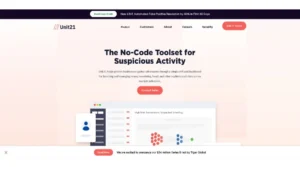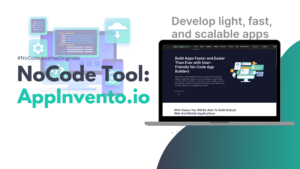Misconceptions About NoCode Mobile App Testing
- Manish Balakrishnan
Table of Contents
ToggleAs technology continues to advance, the NoCode Revolution emerges as a game-changer in mobile app testing. Despite its transformative potential, several misconceptions surround this innovative approach. Addressing these misconceptions is crucial to understanding the true capabilities and benefits of NoCode mobile app testing.
Misconception #1: Cost
Myth: Implementing NoCode solutions is costlier than traditional methods due to initial setup expenses.
Reality: Over time, the efficiency gains and reduced reliance on manual processes offset these upfront costs, making NoCode a cost-effective solution. For instance, automated testing reduces the need for a large QA team, thereby, cutting long-term operational costs.
The video by Coaching No Code Apps breaks down the exact investments and expenses you should plan for when going from “idea” to launch, and even afterwards as you scale.
It’s better to set expectations when building your app and be pleasantly surprised by how smoothly it executes and launches.
Misconception #2: Complexity
Myth: NoCode tools can’t handle complex testing scenarios, particularly in areas like gaming.
Reality: While certain specialized cases may pose challenges, the majority of mobile app testing needs can be effectively addressed using NoCode solutions. Platforms like Sofy have evolved to include sophisticated features that cater to complex testing scenarios.
The discussion revolves around the inevitability of AI integration, specifically with large language models, in mobile app testing, and whether this heralds a transformation akin to the NoCode Revolution. It questions whether AI will replace human involvement in this domain.
Access the full webinar from Sofy to explore SofySense, Sofy’s state-of-the-art test results and test case generator, powered by Open AI.
Misconception #3: Customization
Myth: NoCode platforms lack customization options to fit specific testing requirements.
Reality: Recent advancements have significantly expanded the flexibility and adaptability of these platforms. NoCode tools now offer a wide range of customization options, enabling testers to tailor processes to their specific needs.
Explore Softr‘s NoCode tools for effortless customization, allowing you to tailor the appearance of your web applications to your brand’s aesthetics and improve user experience seamlessly. With Softr’s intuitive tools, adjusting text sizes, button styles, and website dimensions becomes a breeze, empowering you to create the precise look and feel you desire for your website.
Misconception #4: Governance
Myth: Integrating NoCode solutions with existing systems and governance frameworks is problematic.
Reality: Modern NoCode platforms prioritize seamless integration and adherence to the systems development lifecycle, ensuring compatibility and governance. For example, platforms often include built-in compliance features that align with industry standards.
Learn about the findings from thorough research on the security of LowCode/NoCode applications from RSA Conference, conducted by scanning over 100,000 applications across numerous enterprise environments. Michael Bargury, Co-Founder and CTO of Zenity, introduces the updated OWASP Top 10 list, showcases how many applications acquire an identity, and discusses various security issues and their real-world origins.
Misconception #5: Scalability
Myth: NoCode testing is limited in scalability.
Reality: NoCode solutions are capable of handling testing needs of any scale, from small projects to enterprise-level operations. The scalable nature of these tools allows businesses to grow without outgrowing their testing frameworks.
Many wonder, “Can I grow a NoCode app?” or “Is NoCode scalable?” If you’re curious, watch this video! WeAreNoCode answers these questions and shares tips on how to scale your NoCode startup or business.
Misconception #6: Maintenance
Myth: NoCode testing requires extensive maintenance.
Reality: Modern NoCode platforms minimize the need for manual intervention. Automated processes and self-healing test scripts reduce the maintenance burden, making NoCode a practical choice for long-term testing strategies.
Misconception #7: Limited Use Cases
Myth: NoCode solutions are only suitable for basic apps and lack versatility.
Reality: NoCode platforms have expanded their capabilities to support a wide variety of use cases, from simple apps to complex enterprise solutions. This versatility allows organizations to use NoCode tools across different types of projects.
Here’s an example of a top use case from one of the leading LowCode platforms, Sap AppGyver.
SAP AppGyver provides a NoCode solution for various use cases, such as:
- Sap AppGyver enables the creation of diverse apps without coding.
- Voyama Gold, a fintech company, offers a secure gold trading app developed with AppGyver.
- An automotive company uses an AppGyver app to assist car salesmen in promoting electric cars.
- DHL utilizes AppGyver to streamline truck documentation and maintenance tracking for their fleet.
Each NoCode platform offers multiple use cases and has demonstrated its ability to solve various problems effectively. These tools provide a wide range of practical applications that are both effective and accessible to everyone.
Misconception #8: Security Risks
Myth: NoCode platforms pose significant security risks.
Reality: Leading NoCode platforms implement stringent security measures, including data encryption, secure user authentication, and regular security audits. These measures ensure that the applications tested and developed on these platforms remain secure.
OWASP is a non-profit foundation that envisions a world with no more insecure software. Our mission is to be the global open community that powers secure software through education, tools, and collaboration. Learn more about the OAS for LowCode/NoCode provides guidelines to help citizen developers build secure applications.
Security is crucial for citizen developers as their apps can have vulnerabilities and lead to data leakage. It only occurs damage when:
- Citizen developers need to implement security best practices to protect data and systems.
- Mistakes by citizen developers can easily lead to data leakage of critical business information.
Remember: Apps built by citizen developers can have the same vulnerabilities as apps built by professionals.
Misconception #9: Lack of Professionalism
Myth: Apps developed and tested using NoCode tools are perceived as less professional.
Reality: The quality of the end product depends on the design and implementation, not the tool used. Many successful and professional-grade apps are created and tested using NoCode platforms, proving their capability and reliability.
Nicola Toledo is a Full-Stack Webflow Developer and Global Leader. He highlights the importance of choosing the right tools (Webflow, Xano, and Attributes for front-end, back-end, and filtering functionalities in web development) and showcases his project. Tbit, as an example of professional NoCode development. Nicola’s project demonstrates the power of combining various NoCode tools to create a professional web app.
Misconception #10: Poor Performance
Myth: NoCode apps and their testing frameworks perform poorly compared to traditionally coded counterparts.
Reality: Performance is determined by the underlying architecture and optimization. NoCode platforms are designed to be efficient, with many offering performance optimization features that ensure high-quality output.
NoCode app performance issues can be solved by limiting data loading, using front-end code, or externalizing complex algorithms with real code. NoCode testing successfully tackles real-world issues despite its drawbacks, enabling a larger audience to engage in the app development process and spur innovation.
Debunked Misconceptions
The NoCode Revolution holds the potential to transform mobile app testing, yet it is often hindered by misconceptions. By debunking myths surrounding cost, complexity, customization, governance, scalability, maintenance, limited use cases, security risks, lack of professionalism, and poor performance, we can fully realize the benefits of NoCode as solutions.
Through innovative NoCode platforms like Sofy’s, mobile app testing has become swift, painless, and efficient, ensuring seamless user experiences in today’s mobile-driven world. Embracing the advancements in NoCode platforms allows organizations to streamline testing processes, increase efficiency, and stay ahead in the rapidly evolving tech landscape.
As we continue to innovate and adapt, it’s essential to approach NoCode mobile app testing with an open mind, leveraging its capabilities to drive success in software development.
Share
follow us

The Best Landing Pages Using NoCode

NoCode Tool: PrestoAPI

NoCode Tool: Unit21

NoCode Tool: Processica
Explore related posts

Your Tool: AppInvento.io

AI Writing Tools

NoCode Tool: Bitskout























